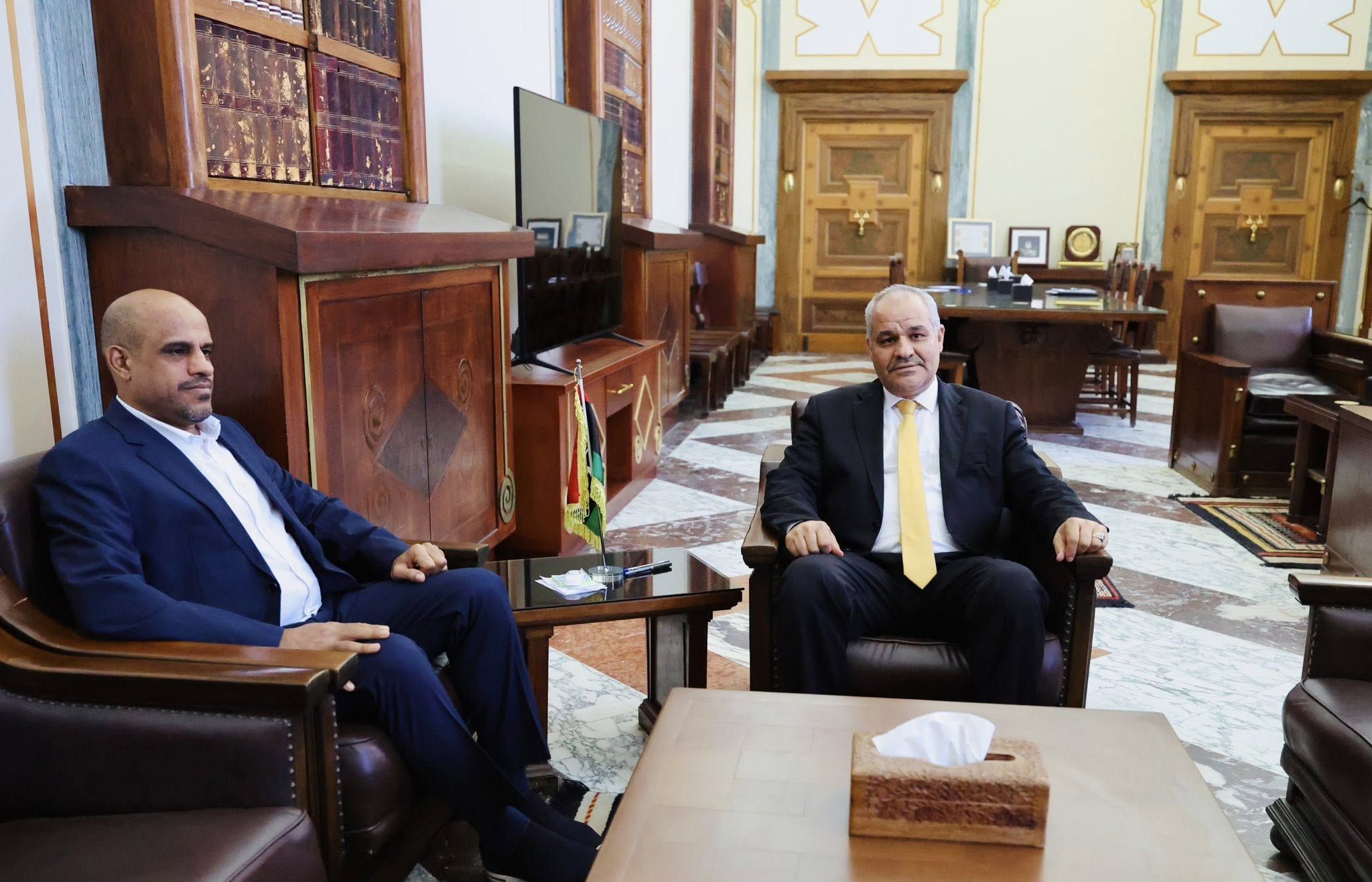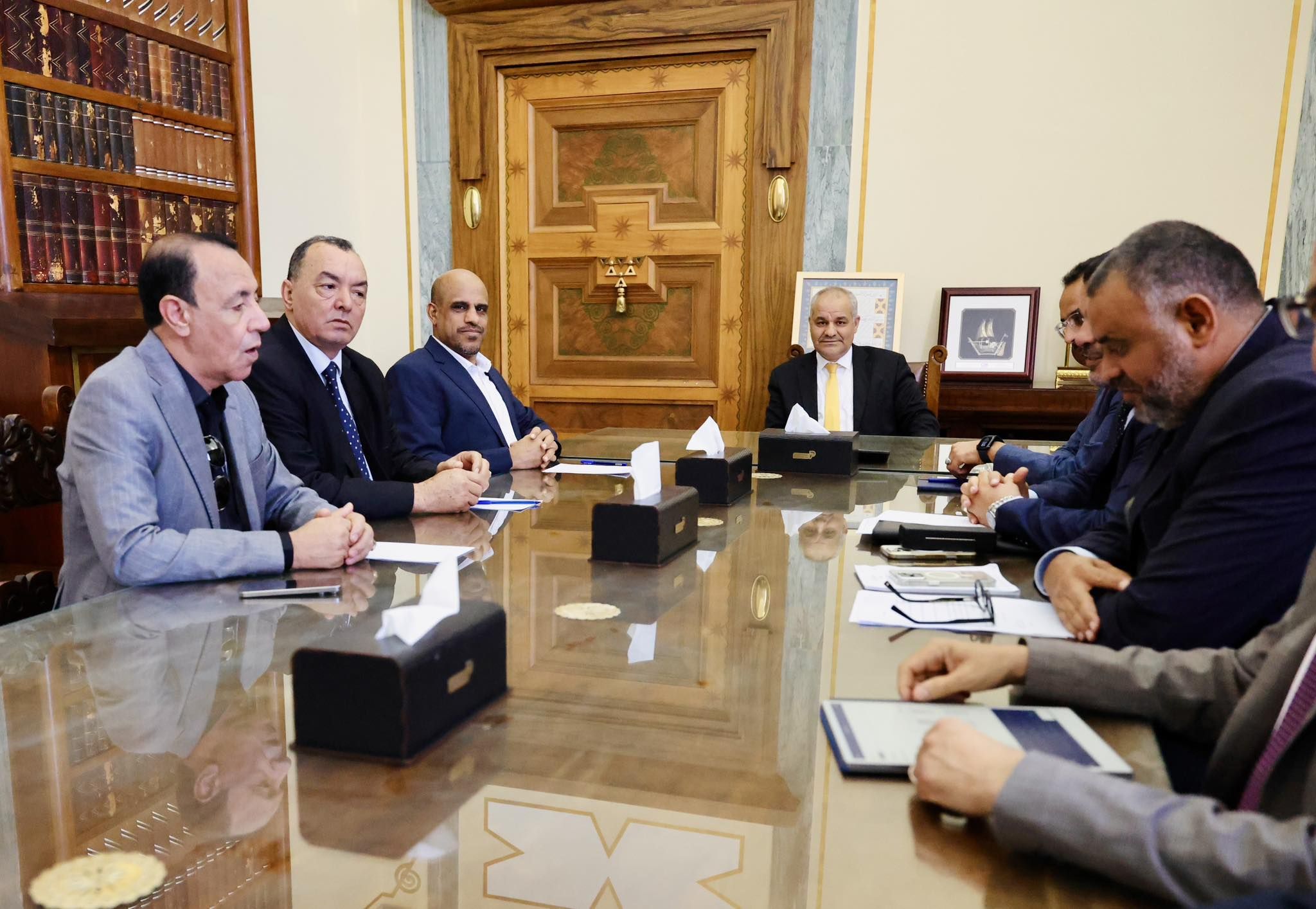Governor of the Central Bank of Libya discusses with the Minister of Local Governance ways to enhance digital transformation and activate the role of the Municipal Guard in regulating foreign currency exchange activities
H.E. Mr. Naji Mohammed Issa, Governor of the Central Bank of Libya, meets with, Mr. Abd Al-Shafi' Al-Juwaifi, Acting Minister of Local Governance, accompanied by Mr. Mustafa Ahmed Salem, Deputy Minister for Municipal Affairs, and Major General Rajab Qatoosa, Head of the Municipal Guard, in the presence of directors of relevant departments at the Central Bank. The meeting focused on enhancing cooperation between the two sides in areas such as digital transformation and improving services provided to citizens at the local level on Wednesday, August 6, 2025.
Discussions also included supporting the efforts of the Municipal Guard in monitoring commercial establishments to enforce the use of electronic payment services by providing Point of Sale (POS) devices and raising customer awareness about instant payment options. Governor Issa emphasized the importance of the Municipal Guard's role in inspecting companies and offices involved in the sale and purchase of foreign currencies and ensuring that they possess an official operating license. The Central Bank stressed the need for the eventual closure of all entities engaged in foreign exchange activities without proper authorization.
This meeting comes as part of broader efforts to strengthen cooperation among state institutions, particularly given the key role the Ministry of Local Governance plays in overseeing municipalities, regulating their administrative and service functions, and ensuring the quality of public services. It also supports the capacity-building of municipal councils to carry out their responsibilities efficiently and effectively.
The meeting further explored mechanisms for enabling digital transformation within municipalities, especially concerning the payment of fees and the processing of financial transactions in public service facilities. These efforts aim to streamline procedures, enhance operational efficiency, and reduce reliance on paper-based and cash transactions. This aligns with the Central Bank of Libya’s vision to involve national institutions in implementing the National Financial Inclusion Strategy and to promote the use of modern financial technologies across various service sectors.





